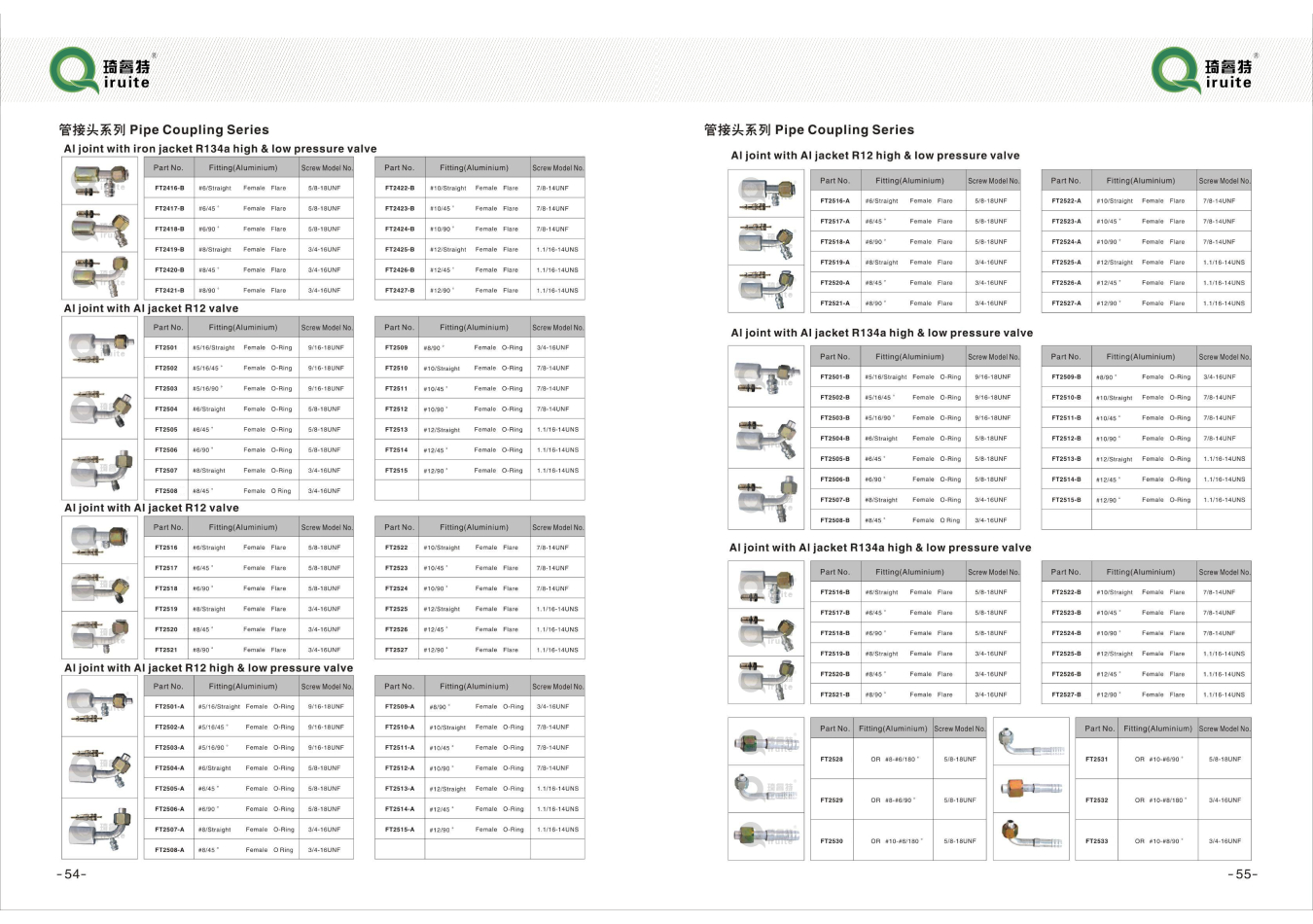brake hose car
The Importance of Brake Hoses in Automotive Safety
When it comes to vehicle safety, few components are as critical yet often overlooked as the brake hose. These essential parts serve as the lifeline of a car's braking system, carrying brake fluid from the master cylinder to the brake calipers, which in turn apply the necessary force to stop the vehicle. Understanding the significance of brake hoses, their construction, maintenance, and replacement can provide car owners with crucial knowledge for ensuring the safety and reliability of their vehicles.
What Are Brake Hoses?
Brake hoses are flexible tubes that connect the rigid lines of the braking system to the components that require hydraulic fluid, such as disc or drum brakes. Usually made from a combination of synthetic rubber and reinforcing materials like braided steel, these hoses are designed to withstand high pressures and extreme temperatures. Their primary purpose is to facilitate the precise movement of brake fluid under pressure, enabling the brakes to function effectively when needed.
The Importance of Brake Hoses
Brake hoses play a vital role in the vehicle's overall braking performance. They serve several key functions
1. Fluid Transfer Brake fluid is essential for hydraulic braking systems, and brake hoses are responsible for transferring this fluid to the brakes. Any leaks or ruptures in the hoses can lead to brake failure.
2. Flexibility and Movement Since the wheels and suspension of a vehicle move, brake hoses must be flexible enough to accommodate this movement without compromising their integrity or function.
3. Pressure Resistance Brake hoses must endure high pressure generated during braking. A high-quality brake hose can handle these pressures without bursting, ensuring your vehicle stops when you need it to.
brake hose car

4. Heat Resistance Braking generates heat, and brake hoses must be able to withstand high temperatures without degrading. Over time, exposure to heat can cause the material to weaken, leading to potential failures.
Common Issues with Brake Hoses
Brake hoses can develop a range of issues due to age, wear, and environmental factors. Some common problems include
- Cracks and Wear Over time, the rubber material can crack and wear due to factors like heat, exposure to oil, or road debris. - Leaking Fluids A visible sign of brake system issues often stems from leaking brake fluid, which can manifest as wet spots near the brake components or under the vehicle. - Blisters or Bulges If a hose develops blisters or bulges, it indicates that the structural integrity is compromised, increasing the risk of a rupture.
Maintenance and Replacement
Regular inspection of brake hoses is crucial for vehicle safety. Car owners should check for signs of wear and tear, such as cracking, fraying, or discoloration. It’s also essential to monitor the brake fluid level and conduct routine brake system flushes to prevent contamination.
Brake hoses should be replaced as part of regular vehicle maintenance, typically every 4 to 6 years, or sooner if signs of damage appear. When replacing brake hoses, using high-quality, OEM (Original Equipment Manufacturer) parts is advisable to ensure optimal performance.
Conclusion
In summary, brake hoses are a critical component of a vehicle's braking system, contributing directly to driver and passenger safety. Regular maintenance and timely replacement of these hoses can prevent potential braking failures, ensuring reliable vehicle performance. By staying informed about the condition of your brake hoses and addressing any issues promptly, you can help maintain the integrity of your braking system—standing as a true guardian of your driving safety. So, the next time you think about car maintenance, don’t forget to give those often-overlooked brake hoses the attention they deserve.
-
Ultimate Spiral Protection for Hoses & CablesNewsJun.26,2025
-
The Ultimate Quick-Connect Solutions for Every NeedNewsJun.26,2025
-
SAE J1401 Brake Hose: Reliable Choice for Safe BrakingNewsJun.26,2025
-
Reliable J2064 A/C Hoses for Real-World Cooling NeedsNewsJun.26,2025
-
Heavy-Duty Sewer Jetting Hoses Built to LastNewsJun.26,2025
-
Fix Power Steering Tube Leaks Fast – Durable & Affordable SolutionNewsJun.26,2025

